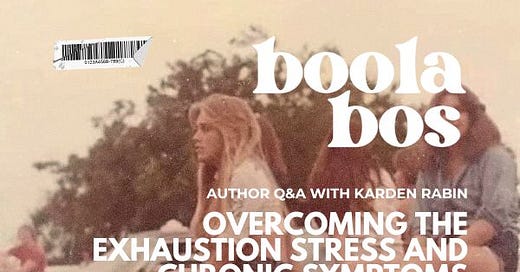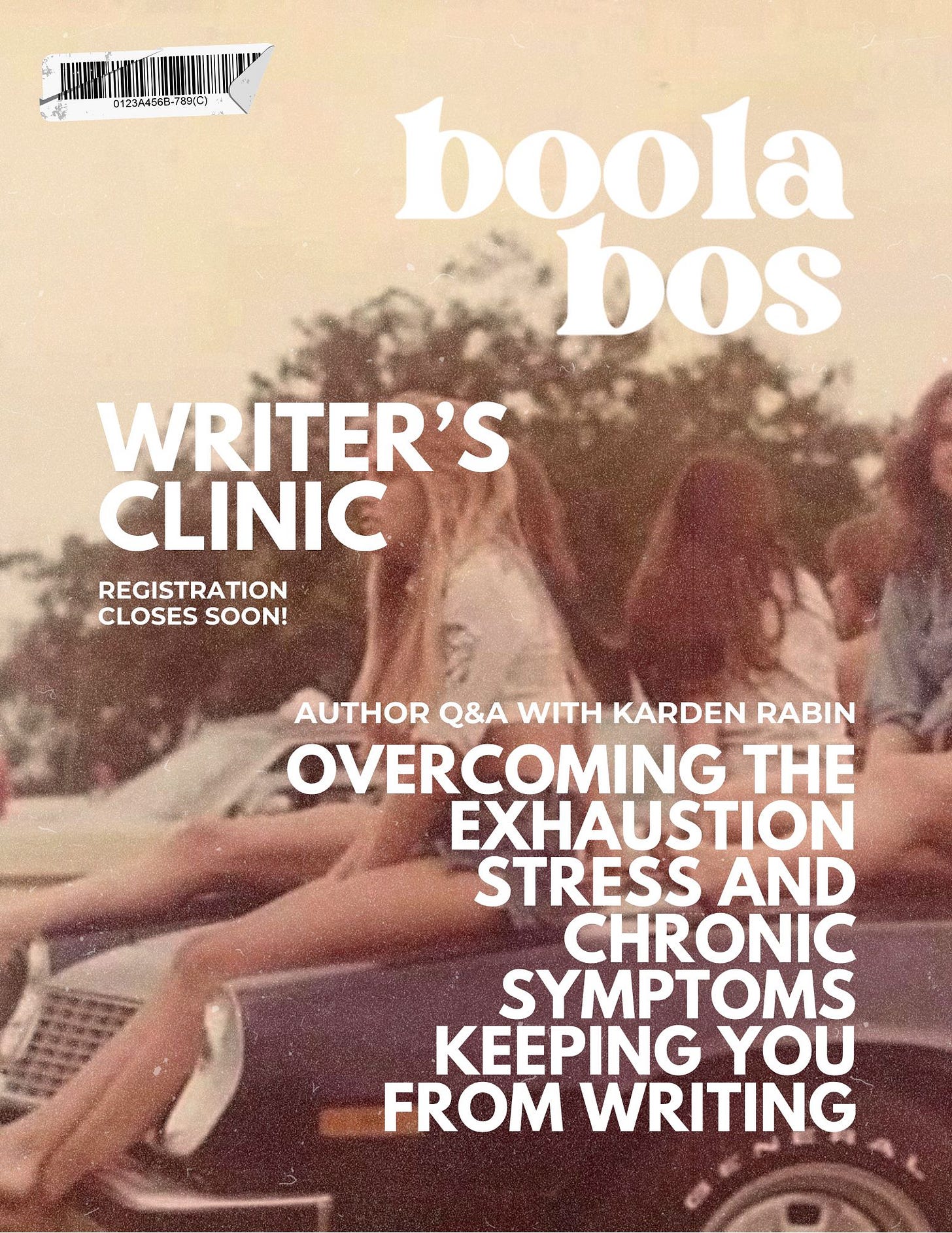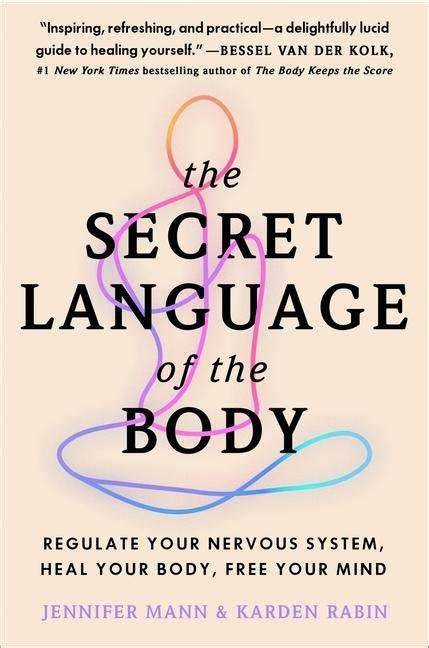✨Author Q&A: the writer’s hidden roadblock—and how to overcome it
If exhaustion, stress, or chronic symptoms are keeping you from the page, author Karden Rabin shows you how to overcome these obstacles✨
Boola Bos is located in Toronto and Minneapolis which are on the traditional territories of many Anishinaabe, Wendat, Haudenosaunee, and Dakota nations. These lands, both ceded and unceded, continue to be contested.
We acknowledge the historical and ongoing genocide, oppression, and exploitation of Inuit, First Nations, and Métis communities, cultures, and languages across what is now known as Turtle Island or North America.
As writers, we recognize the power of language and place names and commit to using our words thoughtfully to honor the many people who have cared for this land long before European colonial expansion.
We commit to operating Boola Bos in ways that support the dismantling of systems of injustice and which cause no further harm to the land, people, and cultures of our shared home.
Author Q&A with Karden Rabin: “The body is always doing what it is doing for a reason, and the heart of healing is identifying that reason.”
We sat down with Karden Rabin, co-author of The Secret Language of the Body and a leading expert in nervous system healing, to talk about the mind-body connection, why chronic stress keeps us stuck, and why learning to regulate your nervous system is the key to lasting healing💡✨
Karden Rabin is a somatic experiencing practitioner who specializes in treating nervous system related illnesses. He is co-founder of Somia, a platform designed to help people navigate and heal from chronic stress, dysregulation, and symptoms, as well as co-author of The Secret Language of the Body which Bessel van der Kolk, author of The Body Keeps the Score, called “Inspiring, refreshing and practical — a delightfully lucid guide to healing yourself.”
After struggling with chronic back pain for over a decade, Rabin found relief by studying the neurological and psycho-emotional roots of stress-based disorders — an approach he now uses to help thousands worldwide. He maintains a private practice at his clinic in the Berkshires of Massachusetts, where he lives with his partner and their children.
BOOLA BOS: Nervous system regulation is a concept that some of our readers may not be familiar with. If someone came to see you in clinic complaining of unexplained fatigue, chronic pain, anxiety, or low mood, and said they felt hopeless because nothing they’ve tried has helped, how would you help them understand in layman’s terms the role their nervous system might be playing in their symptoms?
KARDEN RABIN: Put simply, there are no psychological or biological processes happening in your mind and body that are not completely controlled or at least strongly influenced by your brain and nervous system.
At all times, your nervous system (which includes your brain, btw) is monitoring your internal and external environment and directing every part of you in how to navigate it.
When it detects a social situation that's embarrassing, it tells the skin on your face to flush and for your heart to tighten and beat faster. When it smells delicious food it makes you salivate and your belly to rumble. When it hears something go bump in the night, it causes you to wake up, feel afraid and freeze. When you get dumped by a lover, it causes your heart to ache (with literal pain), for you to feel depressed and not be able to get out of bed for days.
All of these are significant biological responses (a.k.a. symptoms) that have no physical cause like an injury or a virus. They are massive shifts to our mind and body based on how our nervous system controls our body in response to the events of life.
In a healthy person, these responses happen at appropriate moments and then when the stimulus has passed, the nervous system restores itself and the body back to balance. But for many people, especially those who are under prolonged amounts of chronic stress, the nervous system loses its ability to respond to stimuli appropriately and rebound.
So, if you’ve been in a situation where you’ve been working two jobs, are underslept, gotten a virus and then a tragedy like the passing of a loved one happens and your nervous system falls into a depression and fatigue, it can get stuck in that state and be unable to rebound back to normal. And if your nervous system gets stuck, then your mind (depression) and body (fatigue) get stuck there too.
Over time this can lead to all sorts of mental and physical problems, syndromes and diagnoses and folks wander from doctor to doctor, specialist to specialist, treatment to treatment and diet to diet with little to no improvement because none of those professionals recognize that its the person’s compromised and stuck nervous system which is at the root of all of it.
BB: In my [Bronwen Keyes-Bevan] own experience, learning to understand my nervous system and working with it has helped me to heal from a whole host of conditions such as anxiety, depression, chronic pain, chronic fatigue (I could go on…!) but when I shared this progress with one of my doctors they totally disregarded it. I was shocked that someone who has always been really well-informed and up-to-date in their practice could, as far as I was concerned, be so out of touch. Have you seen a disconnect between your practices and mainstream or Western medicine? And if so, why do you think that’s the case?
KR: I feel you, Bronwen! And it couldn’t be more true, the gap is massive. The reasons are manifold so I’ll just name a few:
Western medicine is still stuck in the idea that the mind and body are separate entities and need to be treated separately. You go to a psychologist for mental health problems and a doctor for physical problems. This is obviously ludicrous, but it's still the state of affairs.
Moreover, not only do they separate the mind and the body, all doctors are encouraged to specialize in only one area of the body, narrowing their awareness of the holistic nature of the mind and body even more.
Even for doctors that do acknowledge and support the mind-body connection, they still aren’t trained in treating it and they aren’t actively studying it. So, at best they will encourage you to lower your stress levels, try yoga or meditate, but they definitely have zero clue on how to actually clinically treat the nervous system.
Institutions are sloooooooowwwwwww to change. For example, I recently heard at the Trauma Research Conference that in a survey of all the college level psychology programs in the US, none of them require a course on trauma as part of their curriculum, and less than twenty percent offer an elective on it. If psychology is that slow to embrace the proven science of trauma, then conventional medicine is going to be even slower to embrace it, how it impacts the nervous system, and its relationship to disease.
There is no incentive inside the managed care medical-industrial complex to treat the nervous system.
Lastly, even if the doctor knew about the nervous system and how to treat it, no one can do nervous system work to you. They can teach you, show you, train you and support you, but ultimately nervous system healing takes a lot of self-responsibility and most people just want to be “fixed” by the doctor.
BB: Within what we’ll call wellness circles, nervous system regulation feels a bit like the hot new thing that everyone is talking about and which some are portraying as a miracle cure. What would you say to someone who is perhaps a little skeptical about the potential benefits of working towards a well-regulated nervous system?
KR: I would say, YASSSSS FOR BEING SKEPTICAL! Skepticism is a very helpful thing in the world of wellness because there is a lot of bullshit and trendy stuff. That being said, I would caution against being scornful or dismissive, which prejudices you and is a great barrier to learning and change. The best recipe is skepticism + curiosity + experimentation. By trying something with a cautious but open mind, the work will prove (or disprove) itself to you in due course. But I digress…
Nervous system work is different from all the other trends because it isn’t a “practice” like Yoga, Pilates or mindfulness nor is it a sexy new supplement like Vitamin D, fish oil or Lion’s Mane. It's a massive paradigm shift in humanity’s understanding of the absolutely critical role that the nervous system plays in every aspect of human health and wellbeing + an emerging set of “diagnostic” models + an array of therapeutic interventions for healing it. In the same way that we now take it for granted that germs make us sick and antibiotics are the cure, I expect that soon it will be common knowledge that trauma and stress also make us sick and nervous system medicine is the cure.
"In the same way that we now take it for granted that germs make us sick and antibiotics are the cure, I expect that soon it will be common knowledge that trauma and stress also make us sick and nervous system medicine is the cure."
—Karden Rabin, in conversation with Boola Bos
BB: When people talk about trauma, more often than not they’re referring to experiences of, for example, child abuse, sexual violence, or the sudden loss of a caregiver. But in our opinion, trauma is much more broadly defined than that and is, unfortunately, far more common. Gabor Maté speaks about “capital-T” traumatic events (such as abuse or the loss of a parent) and “small-T” trauma when, for instance, a child’s needs are not met. Does this track with what you’ve experienced in your practice or do you think people overuse the term?
KR: The popularization and overuse of any term tends to rob it of its meaning. The field of trauma studies is nearly two hundred years old, but it's only been in the last half century that it has begun to coalesce into a recognizable field and it’s only in the last ten years that its found its way into popular culture.
Traumatologists are still grappling with the definition of trauma and so it's no surprise that the mainstream is as well. Until a more comprehensive schema is devised to represent the broad spectrum of types of trauma and degree of traumatic injuries, concepts like big T and little T trauma can be useful. But for the sake of your readers, I would simply say that trauma could be defined as any experience that enduring compromises the capacity of the brain and nervous system (i.e., the human being) to develop and function in a healthful way.
Therefore, neglect, abuse, chronic stress, emotional abandonment, a near death medical incident, chronic bullying, the tragic loss of a family member, bearing witness to violence, poverty, and surviving a catastrophe could all be called trauma if they result in dysregulation of a person’s nervous system and impair their ability to live a healthy life (mental, physical, professional, social, etc.).
In our book and program, we tend to break out these trauma-ish experiences into three categories: stress, attachment injuries, and trauma (the SATs). And if you look at it like that, then yes, there is justification for using the word trauma in a lot of circumstances.
BB: What do you wish people understood better about the link between unprocessed trauma and both physical and mental health symptoms?
KR: Although trauma can be caused by many things and present in many different ways, at its heart, trauma is an injury to our ability to feel safe, connected, protected and fully alive. As long as we have unhealed trauma our nervous system perceives itself to be in danger, disconnected, unprotected and needing to survive and will reroute all of the body’s systems and mental faculties, in one way or another, to surviving instead of thriving.
You can think of it like an infection in the body that's going untreated. Sure you can go on living, but your body will have to deploy more and more of its resources to managing the infection and you’ll have less for living your life.
Over time, it will spread, affecting other areas, causing new problems and draining your life force even more. No one would allow that to happen to themselves, they would treat the infection and recover.
I wish people would see how trauma does the same thing and how they too can treat it with nervous system work and get their life back.
Grab your copy of The Secret Language of the Body here. Purchasing books through Bookshop.org supports authors, indie bookstores, and small businesses. Win-win-win!
🚨Registration to Writer’s Clinic closes soon🚨
Tried everything to finish your MS but still not done? The real reason you're not making progress might surprise you.
When it comes to finishing your manuscript, a lack of consistent rhythm or routine can feel crippling.
It drains your time and energy, makes you feel guilty or like there’s something wrong with you.
But here’s the thing: inconsistency is a symptom, not the root cause of why it’s not done yet.
In countless hours of 1:1 client work, we’ve seen the same thing crop up over and over. Trust us: you don’t have a consistency problem.
Or a “just haven’t found the right routine yet” problem. Or a “just need to be more productive” problem.
In fact, chances are there’s nothing wrong with you at all.
You probably just have a design flaw in your plan and it’s the reason you’re working your butt off but haven’t finished that badboy yet.
Your progress towards finishing it won’t improve unless you explicitly design your manuscript-writing strategy so that you know the exact activities you need to do to finish it now instead of in three years.
A highly personalized strategy (with radical focus and accountability built in) is how you stop pouring massive energy into your manuscript without seeing any real progress.
Instantly you feel less drained. Less burned out. And you get that MS done in half the time.
The good news is that you don’t need to overhaul your entire life in order to finally type THE END and start querying agents.
By tweaking your writing plan so that you’re focusing on the right activities and only the right activities, you will finally finish the book and move into the next phase of your author career 👏
In a single 60-minute, on-demand training Writer’s Clinic gives you everything you need to finally get your manuscript polished and query-ready. We take a sports medicine approach to assess, diagnose, and treat what's blocking you because elite writers—like elite athletes—deserve top-tier support.
Our proven step-by-step process works like this:
We conduct a comprehensive exam—Together we define your desired outcome, assess your actual symptoms (instead of relying on generalities), and form a hypothesis about what’s truly holding you back.
We run targeted tests—We guide you through a diagnostic process to test our hypothesis. There’s no point in treating something you’re not actually experiencing—but that’s a common mistake, and it may be why past attempts to “fix the problem” haven’t worked.
We create a personalized treatment plan—Your plan will be both comprehensive and practical, designed to work with your reality, not against it. With built-in accountability, you’ll have the tools to move forward, finish your manuscript, and confidently query literary agents.
Boola Bos’s proven process is why so many of our clients have experienced a major unlock within days—finally putting their hard work, innate writing ability, and hard-won skill to use to finish the manuscripts that had been troubling them for so long.
Doors to Writer’s Clinic close in a few days. Let’s make 2025 the year you finish your manuscript 🥳







